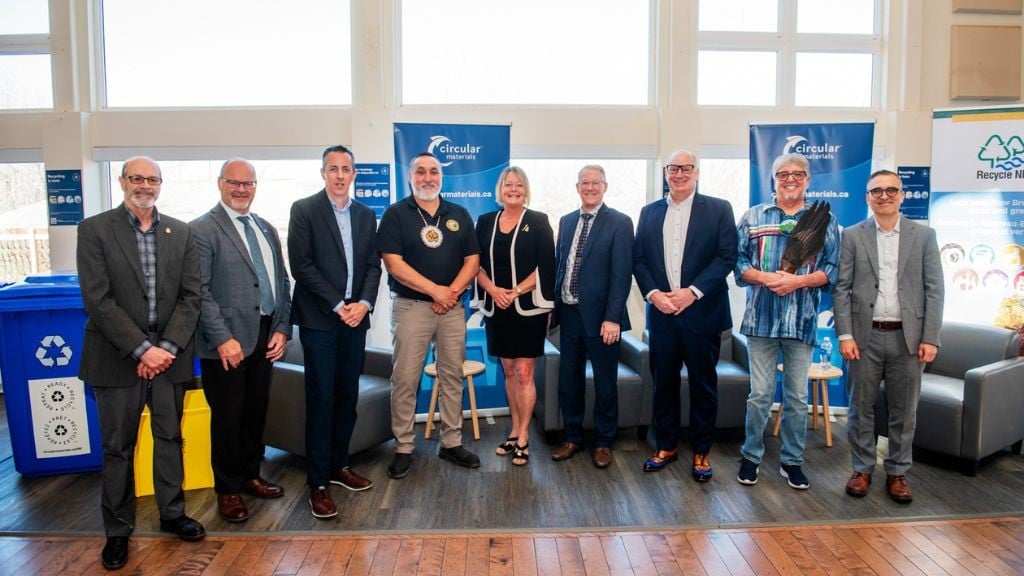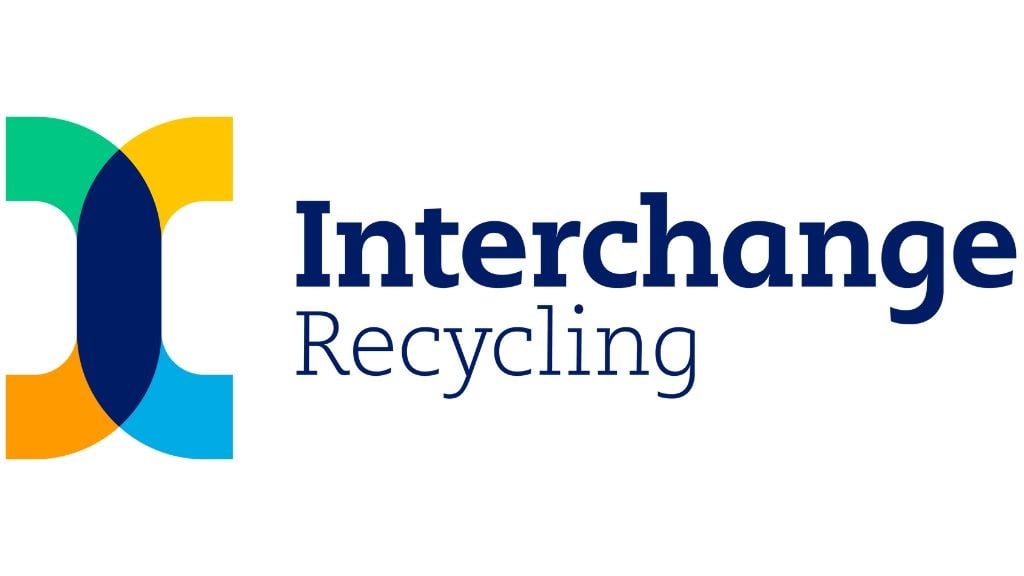What you need to know about New Brunswick's newest EPR program
The extended producer responsibility program now includes curb side recycling services for multi-family residences and schools

Circular Materials has officially expanded New Brunswick's extended producer responsibility (EPR) program for packaging and paper, beginning on May 1, 2025.
This latest phase extends recycling to multi-family residences, schools, and communities that were previously depot-based or without any recycling services. With this expansion, all communities in New Brunswick now have curbside recycling.
Recent event highlights a collaborative approach to positive recycling solutions
Circular Materials is a producer-led not-for-profit organization that supports producers in advancing recycling and meeting EPR obligations in New Brunswick. The leaders from Circular Materials were joined by government officials in Oromocto to highlight how this expansion deepens service access, strengthens community inclusion, and brings the province closer to a harmonized, province-wide approach to recycling.
To date, 14 of New Brunswick's 15 First Nation communities have either transitioned or are in the process of transitioning to the program. This includes Oromocto First Nation and St. Mary's First Nation, both of which are joining the latest rollout. This reflects a strong commitment to equity, accessibility, and meaningful partnership across all communities.
Recognizing the importance of recycling education among youth, Circular Materials is launching a comprehensive education program in collaboration with The Gaia Project, specifically designed for elementary schools across New Brunswick. This hands-on, curriculum-aligned initiative will be piloted in select schools and rolled out more broadly in the fall. The program, which will include a recycling education workshop and school toolkits comprised of digital and physical activities, aims to engage students and educators, increase recycling participation in schools, and track improvements in recycling behaviours and contamination reduction.
Some of the highlights of this expansion include:
- As of May 1, over 20,000 new households across the province will have access to curbside recycling collection for the first time. This includes households in Grand Bay-Westfield (Ward 1), Hampton's Ward 2, Oromocto, Oromocto First Nation, Grand Manan, White Head Island in the Southwest Rural District, and the Meductic region in Lakeland Ridges.
- A total of 133 schools have joined the EPR program.
- Approximately 10,000 multi-family units have joined the program as part of Phase 1 of the rollout, with residents now receiving direct recycling collection services through their buildings.
- All 89 entities have now transitioned under the EPR framework.
Looking ahead at recycling in New Brunswick
New Brunswick's EPR program will continue to expand, with the next phase of school and multi-family integration planned for November 1, 2025. Schools and multi-family dwellings can register to be included in phase 2 on the Circular Materials website before May 31, 2025. Additional registry and service cadences beyond phase 2 are to be announced. Additionally, the launch of recycling in public spaces is targeted for 2027.
"New Brunswick is leading the way as the first Atlantic province to transition to extended producer responsibility for packaging and paper, and we are proud to continue the important progress in the province," said Allen Langdon, CEO of Circular Materials. "This expansion reflects the power of collaboration—between producers, governments, First Nations, and communities—to build a strong circular economy that benefits all New Brunswickers."
"This expansion of New Brunswick's extended producer responsibility program reflects our government's ongoing commitment to building a cleaner, more sustainable future for all communities," said the Honourable Gilles LePage, Minister of Environment and Climate Change. "By extending curbside recycling to more homes, schools, apartment buildings, and First Nation communities, we are making it easier for New Brunswickers to recycle and contribute to a circular economy. I commend the leadership shown by Circular Materials, Recycle NB, and our Indigenous and municipal partners in making this vision a reality."
"This expansion is an important step forward in ensuring that First Nation communities are included in province-wide environmental initiatives," said Jim Ward, General Manager North Shore Mi'kmaq Tribal Council. "Through our collaboration with Circular Materials, we've worked to make sure that access to recycling is available and responsive to the unique needs of our Mi'kmaq communities. We value this partnership as a step toward long-term environmental sustainability, community empowerment, and ensuring that Indigenous voices are reflected in the design and delivery of recycling systems across the province."



